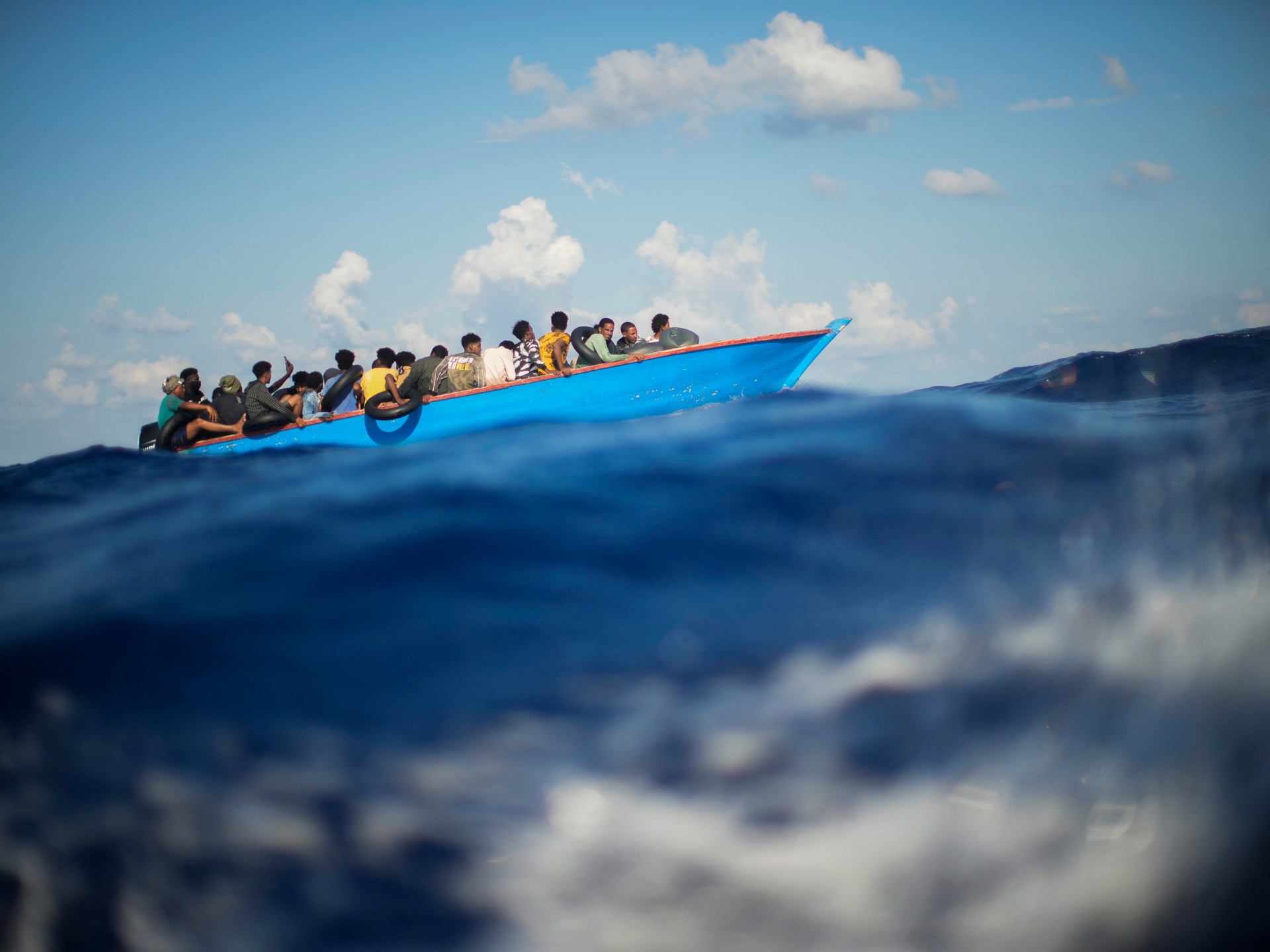Protesters rally in Sri Lanka despite curfew, social media curbs
Colombo, Sri Lanka – Hundreds of protesters are rallying in Sri Lanka’s capital, Colombo, demanding President Gotabaya Rajapaksa step down, after authorities blocked access to social media platforms and imposed a curfew to contain protests over a worsening economic crisis.
Dozens of politicians from the opposition Samagi Jana Balawegaya (SJB) alliance and its supporters gathered near Colombo’s Independence Square in defiance of the curfew on Sunday, chanting “Go home, Gota, go home”, referring to the president’s nickname, while supporters of another opposition alliance Jathika Jana Balawegaya also rallied in a town on the outskirts of the capital to protest against soaring inflation, food shortages and power cuts.
At Independence Square in downtown Colombo, the protesters’ path was blocked by police and soldiers armed with assault rifles.
Sajith Premadasa, the opposition leader, pleaded with the security forces to let the march go ahead.
“People can’t live, this is a peaceful demonstration,” he said. “Why is there a curfew? Is there a threat to national security? A tsunami? The curfew has been imposed to save the Rajapaksas from public anger.”
Rajapaksa – whose brothers hold key positions in his government, including the posts of prime minister and finance minister – deployed troops to the streets after declaring a state of emergency and imposing a 36-hour curfew that began at 6pm on Saturday.
The move was widely seen as a bid to block nationwide protests planned for Sunday.
The telecoms regulator meanwhile blocked access on Sunday to Facebook, Instagram, Twitter and YouTube, as well as the messaging platforms WhatsApp and Viber. The agency said this was done on the orders of the defence minister.
Netblocks, a global monitoring group, confirmed the blackout, saying it took effect after midnight on Sunday.
In an apparent sign of dissent within the government, Sri Lanka’s Minister for Youth and Sports Namal Rajapaksa, who is a nephew of the president, said he would “never condone the blocking of social media” and urged “authorities to think more progressively and reconsider this decision”.
Dozens arrested
The calls for Rajapaksa’s resignation came as Sri Lanka struggles with what some analysts have called its worst economic crisis since independence from the British. Sparked by a foreign exchange crisis, the downturn has left the government unable to pay for imports of fuel, food, medicine and other essentials and resulted in rolling blackouts for up to 10 hours.
Sri Lankans have been staging small, peaceful protests over the economic woes throughout March, but when the government announced a power cut of up to 13 hours on Thursday, hundreds took to the streets near the president’s private residence in Colombo, with some attempting to push through the barricades leading to the building.
Clashes ensued, with protesters setting fire to several military vehicles and police arresting 54 people. All but six have since been released.
Police also arrested on Friday prominent activist Thisara Anurudhdha Bandara, who was the administrator of a popular Facebook group called “Go Home Gota”. He was accused of inciting public unrest, but his lawyer Malaka Palliyaguruge described Bandara’s arrest as an attempt at clamping down on freedom of expression.
“The government can’t arrest people for saying ‘Gota go home,’ and there is no evidence to say violence have been incited,” the lawyer told Al Jazeera.
Bandara was released on bail on Saturday amid a huge outpouring of public support, including from the country’s human rights commission which launched an investigation into the police’s actions.
Amid the tensions, the Public Utilities Commission of Sri Lanka on Saturday said scheduled power cuts on Sunday have been reduced from the planned six hours to one hour and 40 minutes.
The PUCSL said it had received adequate diesel for power generation.
The energy ministry meanwhile said it expects to receive 6,000 tonnes of diesel from the Indian Oil Corporation and another 12,000 tonnes of diesel from the Indian government, under a credit facility. The shipments will arrive on Wednesday and Thursday, it said.
Sri Lanka has turned to India and China for financial help and is also seeking a bailout from the International Monetary Fund.
In Maharagama, on the outskirts of Colombo, protesting crowds said the government’s measures were inadequate.
“Gota has to go home. Let someone who can run the country, do this,” said KD Lala Kantha, a former legislator. “There are many serious issues and the government has no answer.”




